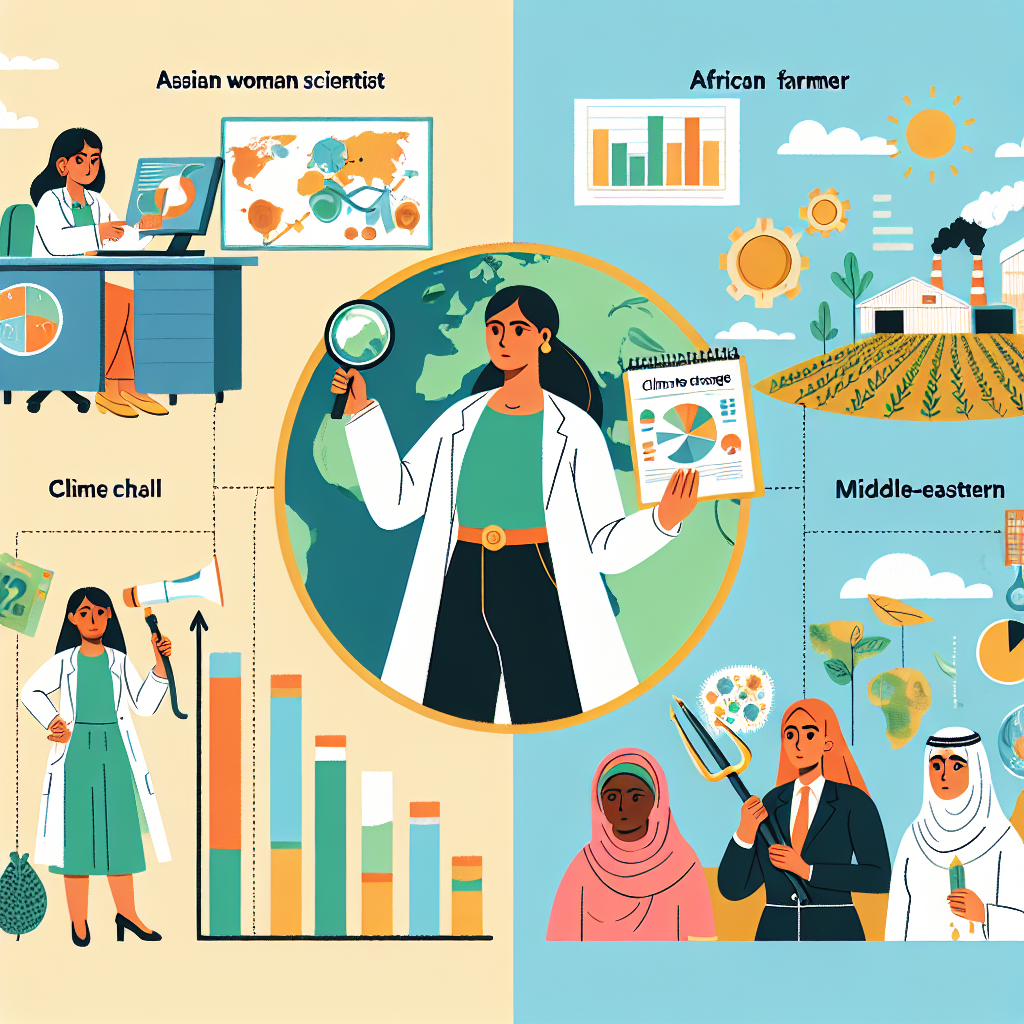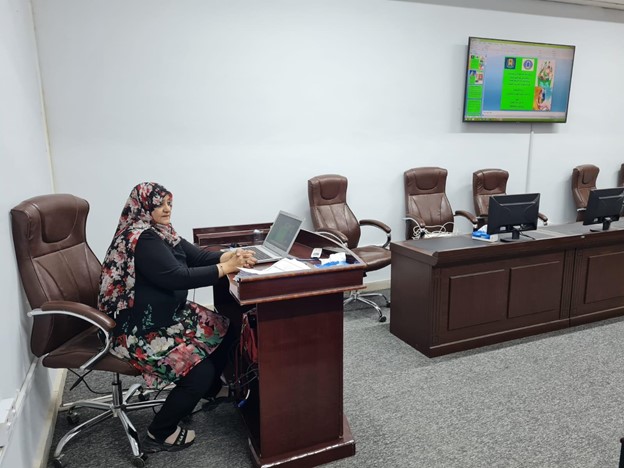The College of Engineering at the University of Baghdad holds an in-person symposium entitled (Women and the effect of climate change) within the scientific activities of the Department of Electronics and Communication Engineering and in cooperation with continuing education, sponsored by the Dean of the College of Engineering, Professor Dr. Ghassan Hameed Abdul Majeed, and supervised by the Head of the Department of Electronics and Communication Engineering, Assistant Professor Dr. Aqiel N. Al-Mamori, which was delivered by Dr. Anwar Qasim Al-Khateeb, on Thursday 9/5/2024, in the department’s discussion room, in the presence of a number of teachers, employees. The symposium included the following topics:
-What is meant by climate change?
-What are the effects of climate change?
-How do climate changes affect women?
-How can the effects of climate change on women be addressed and mitigated?
The effects resulting from climate change were mentioned in terms of economic, social, health, education, job opportunities, housing, and violence against women. The effects resulting from climate change were mentioned in terms of economic, social, health, education, job opportunities, housing, and violence against women.
Finally, the symposium came out with a set of recommendations:
- A rapid transition from an energy system based on fossil fuels to a renewable energy infrastructure is necessary.
- Providing more leadership positions for women at the levels within cities, villages and governorates.
- Enacting laws and legislation that support women’s effective participation in issues confronting climate change.
- Enacting laws and legislation that support women’s effective participation in issues confronting climate change. Granting more loans and credit facilities to women who implement environmentally friendly projects. Strengthening the partnership between all actors in the state and civil society institutions in order to contribute to the empowerment of women.
- Raising awareness of sound environmental behavioral practices, maximizing the role and responsibility of women, and avoiding bad environmental practices and behaviors and excessive consumption of natural resources and fuel.
- Supporting industrialized countries for developing and poor countries that are greatly affected by climate change, reducing migration, and creating alternative jobs, such as supporting some clean professions and handicrafts, in which it is possible to recycle a lot of difficult-to-decompose waste, meet some of the family’s needs, and reduce the financial burden on them.
- Using modern methods in agriculture and irrigation, especially those that reduce water consumption and using modern mechanization that can help rural women carry out their work easily.
- Using smart methods to rationalize the consumption of energy, natural resources and fuel, and relying on clean energy such as solar energy, which will reduce emissions of toxic carbon gases, whether at home or at work.
- Paying attention to educating women, especially those who suffer from migration and displacement, and creating mobile schools that are easy to reach, as well as helping them in studying and understanding by allocating educational and media programs that help them complete their studies and not drop out of schools, because of their major role in increasing women’s awareness and helping them and their families overcome problems of Climatic impacts.








